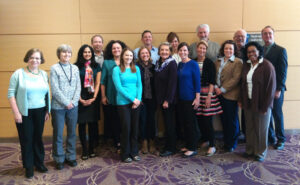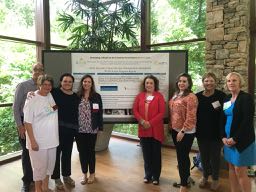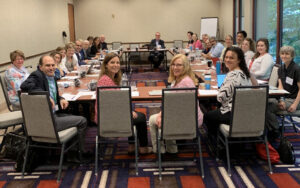Resources for Families and Professionals during COVID-19 and Beyond
ADHD
CHADD/National Resource Council Guidance for Uncertain Times
The National Resource Center on ADHD (NRC), a program of CHADD, was established to be the national clearinghouse for the latest evidence-based information on ADHD. The NRC serves as a National Public Health Practice and Resource Center (NPHPRC) with the mission to provide information, education and consultation about assessment, diagnosis, treatment, and issues of health and well-being for children with ADHD and their families. Multiple resources relevant to setting up home learning, supporting organization and time management, and managing strong emotions during COVID-19 have been posted.
ADDitude Magazine: ADHD in a Pandemic
ADDitude provides a range of resources for families, educators, and individuals affected by ADHD with downloadable resource manuals, frequent webinars, and articles on a range of topics related to ADHD.
Autism
AFIRM COVID-19 Toolkit: Supporting Individuals with Autism During Uncertain Times
The UNC Frank Porter Graham Child Development Institute Autism Team created a comprehensive guide with visual tools and resources related to support strategies, coping and calming skills, hygiene, daily schedules and routines, communication, activities, and more.
AFIRM COVID-19 Supplemental Toolkit for Adults
This guide was developed as a response to many self-advocates and family members who reached out to our team to develop resources for adults. It is intended to centralize many different adult-specific resources and can serve as a supplement or companion guide to the Supporting Individuals with Autism through Uncertain Times toolkit. The materials are divided into four topic areas: COVID-19 Resources, Daily Living Resources, Social Connectedness Resources, and Mental Health Resources.
Cincinnati Children’s Division of Developmental and Behavioral Pediatrics Coronavirus (COVID-19) Virtual Outread Series
In partnership with the University of Cincinnati Center for Excellence in Developmental Disabilities (UCCEDD), provides training and community education to parents, caregivers, and community members on relevant topics impacting individuals with developmental disabilities and their families.
UC Davis ADEPT Parent Training
ADEPT (Autism Distance Education Parent Training) Interactive Learning is a 10-lesson interactive, self-paced, online learning module. The goal is to provide parents with tools and training to more effectively teach their child functional skills using applied behavior analysis (ABA) techniques.
Educational Rights and Advocacy
ADDitude Magazine: Your Child’s Educational Rights While Crisis Schooling: IEPs and 504 Plans in a Pandemic
DREDF provides updates on legislation and policy, sample templates for use in corresponding with districts, and articles on topics related to education and health care for individuals with disabilities. (Virtual IEP Meeting Request for COVID-19 Contingency Plan)
March 12, 2029 Questions and Answers about Providing Special Education from the Department of Education
March 21, 2020 Supplemental Fact Sheet from the Department of Education
Wrightslaw COVID-19 Parent Advocacy Fact Sheets
Learning Differences
International Dyslexia Organization: (Free, Downloadable) Dyslexia and Reading Disabilities Resource Guide for Families and Educators Affected by COVID-19
Learning Disabilities Association of America COVID-19 Resources Page
This includes several resource documents and webinars pertaining to supporting students with disabilities during COVID-19.
LD Online
LD OnLine is a national educational service of WETA-TV, the PBS station in Washington, D.C. that includes resources and articles on a range of topics related to learning disabilities as well as AD/HD.
Understood.org
Understood.org provides articles that explain learning differences and related issues in an accessible manner for families, individuals with learning differences, and professionals.
Motivation, Coping Strategies, Social Skills, and Behavior
Lives in the Balance
Dr. Ross Green’s Collaborative Proactive Solutions model offers families and school staff concrete strategies for helping understand the ‘why’ of a child’s behavior, to identify “lagging skills,” and to collaboratively come up with a plan for change. The Explosive Child Podcast, Episode 25, Collaboration in Trying Times
Making Social Learning Stick
This website includes free downloadable schedules, visual supports, articles, and videos related to supporting learners at home during COVID-19.
Social Thinking Free Stuff for Use at Home and School/Social-Emotional Support Strategies
Resources include read Aloud Books and Thinksheets, video lessons, webinars, and articles.
Zones of Regulation
Created by an Occupational Therapist, the Zones of Regulation is a framework designed to foster self-regulation and emotional control. This site includes free downloadable resources as well as free webinars showing how to adapt resources for home during Distance Learning.
Positive Parenting During COVID-19
World Health Organization Parenting During the Time of Covid-19
To help parents interact constructively with their children during this time of confinement, these 12 one-page tips for parents cover planning one-on-one time, staying positive, creating a daily routine, avoiding bad behavior, managing stress, managing anger, how to encourage play, and talking about COVID-19.
Stress, Resilience, and Mental Health Topics
American Psychological Association COVID-19 Resources
Resources from the American Psychological Association on managing stress and coping during this pandemic.
Child Mind Institute
Articles on a range of topics, including learning disabilities, autism, anxiety, depression, and mood issues.
Greater Good Guide to Well-Being During the Coronavirus
Discover science-backed practices for more resilience, connection, and well-being, with step-by-step instructions on how to implement them in your life. Articles focus on reducing stress, managing anxiety, and fostering happiness.
Greater Good Article: How to Reduce the Stress of Homeschooling on Everyone
National Suicide Prevention Lifeline
The National Suicide Prevention Lifeline provides free and confidential emotional support to people in suicidal crisis or emotional distress 24 hours a day, 7 days a week. Call 1-800-273-8255 or visit their website to chat with a crisis counselor.
Right Now I’m Fine
This free book is for anyone affected by worries, fears, discomfort, or nagging thoughts about the Coronavirus (Covid-19). This is a scary time in the world, full of uncertainty and changes. But the good news is, there are things that we can do to take good care of ourselves. This book explains what you can do to keep your mind and body calm now and during any hard time.
Talking with Children about Covid-19
My Hero is You: How kids can fight COVID-19!
With the help of a fantasy creature, Ario, “My Hero is You, How kids can fight COVID-19!” explains how children can protect themselves, their families and friends from coronavirus and how to manage difficult emotions when confronted with a new and rapidly changing reality.
National Association of School Psychologists: Helping Children Cope with Changes During Coronavirus
Traumatic Stress Network: Supporting Children During Coronavirus
Offers ways to support children and talk to them about COVID-19. This fact sheet describes how to start a conversation with children about COVID-19, correct inaccurate information, encourage children to ask questions and how to answer them, help children self-regulate, and outlines common reactions, how to stay connected, practice self-care, and what to do if you need extra help.
Why We Stay Home: Suzie Learns about Coronavirus
In this book geared to preschool-2nd grade students, Suzie is really excited to be able to stay home with her Mommy, Daddy, and older sister Millie! When Suzie expresses this to Millie, she explains to Suzie why they have been staying home with a quick lesson about the Coronavirus.
Other Resources
Special AXYS Newsletter: Resources for Distance Learning, Keeping in Touch, Staying Relaxed & More



